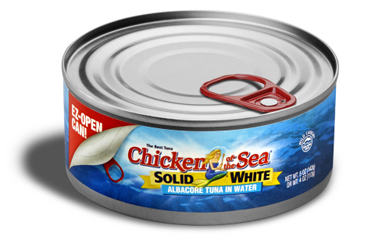Chicken of the Sea is nearing two settlements in civil litigation launched against it in relation to its role in fixing the prices of canned tuna.
The El Segundo, California, U.S.A.-based company and its parent firm, Thai Union, have agreed in principle on two separate agreements with those who claim to have overpaid for tuna it sold between 2011 and 2015 – allegations that stem from a criminal case in which Chicken of the Sea served as a whistleblower.
The first settlement involves members of the so-called end-payer plaintiffs (EPPs), representing individual Americans who purchased canned tuna during the period in question. The proposed agreement calls for Chicken of the Sea to pay up to USD 20 million (EUR 16.6 million), with USD 5 million (EUR 4.2 million) of that total dedicated to covering the costs of publicizing the agreement and USD 15 million (EUR 12.4 million) used to pay claims and litigation costs, which the plaintiffs’ attorneys estimated to total in excess of USD 4 million (EUR 3.3 million).
The existence of the settlement was first disclosed in legal documents filed in January 2021, but the settlement figure was first revealed in a 9 April request from both parties to have the agreement approved by U.S. District Court for the Southern District of California Judge Janis L. Sammartino, who is overseeing the case.
Class-members who a submit a valid claim – they must have purchased around 200 cans of tuna, or approximately one can of tuna weekly between 2011 and 2015 – will be entitled to approximately USD 10.50 (EUR 8.72), according to the agreement. The class is estimated to contain more than 100 million consumers
In written testimony provided in the case by an expert representing the EPP class, it was estimated damages to the class totaled around USD 60 million (EUR 49 million). The USD 20 million figure was arrived at by both parties as an “icebreaker” settlement “in order to clear the decks for further litigation and trial with the non-settling defendants,” according to the EPP class attorneys.
Due to Chicken of the Sea’s cooperation in the case, it is liable only for single damages based on its own sales, “whereas the other defendants [Bumble Bee and StarKist] are jointly and severally liable and face treble damages,” according to the EPP attorneys.
“The COSI settlement agreement is the result of months of extensive arms’ length negotiations. The process required more than a dozen settlement discussions, numerous emails, and several in-person meetings,” the EPP attorney wrote in the proposed settlement. “Finally, after several failed face-to-face discussions, a [Thai Union] executive from Asia came to California for a negotiating session that resulted in an agreement in principle. Resolution was only reached when settlement class counsel sat across the table from a member of [Thai Union]’s global leadership team to directly discuss the risks of continued litigation.”
Chicken of the Sea/Thai Union has also reached a USD 6.5 million (EUR 5.3 million) proposed settlement with the commercial food-preparers (CFPs) class. That includes purchasers of packaged tuna from Sysco, US Foods, Costco, Walmart, Sam’s Club, and/or DOT Foods in 27 U.S. states. The amount represents one-third of the USD 20.5 million (EUR 17 million) in total damages to the class from the price-fixing, as estimated by an expert witness for the class. Out of the total settlement, USD 3 million (EUR 2.5 million) would be set aside for legal expenses.
Sammartino will consider the EPP settlement proposal on 20 May, and a date for the hearing on the CFP settlement proposal has not yet been set.
Photo courtesy of Chicken of the Sea







